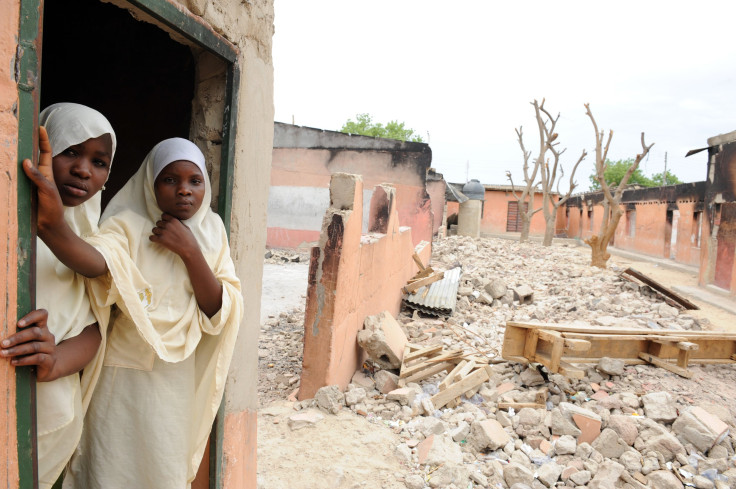Boko Haram Seizes Chibok: Militant Group Attacks Nigerian Town Where 276 Schoolgirls Were Kidnapped In April

Boko Haram, the Nigerian Islamist militant group, has seized control of the town of Chibok, in the north-east of the country, from which it kidnapped 276 schoolgirls in April of this year.
Militants attacked the town around 4 p.m. local time on Thursday. Fighters from the group destroyed communications masts, and witnesses who fled the assault described seeing bodies in the street, according to a report from The Guardian.
Musa Ali, a vigilante who tried to defend Chibok, told the BBC that the militants had attacked in two groups. "You couldn't count them because there were so many," he said.
"All the security and the soldiers, they ran away and left us on our own. They didn't shoot at them, they just ran. All the ammunition we had was finished, so there was no way we could attempt to hold the area."
The attack on the hugely symbolic town is another nail in the coffin of a mooted ceasefire deal, which the Nigerian government announced last month, which was to have seen the kidnapped schoolgirls released, and a cessation of hostilities between the militant group and the Nigerian army.
The group's leader, Abubakar Shekau was also seen in a video earlier this month, denying that a ceasefire deal had been struck, and saying that the kidnapped schoolgirls had been “married off”.
U.S. State Department spokeswoman Jen Psaki said that the United States is closely monitoring the situation in Chibok and remains committed to helping Nigeria's government, according to Voice Of America.
"We condemn these attacks in Chibok, a community that has already suffered too much. Our condolences go out to the families of the victims. We remain committed to helping the government of Nigeria address the threat posed by extremist organizations," said Psaki.
The abduction of the Nigerian schoolgirls sparked a world-wide social media campaign earlier this year, as well as pledges of foreign assistance to recover the kidnapped children. No discernible progress has been made in returning them to their families.
Boko Haram, which translates as “Western education is forbidden,” has been fighting an insurgency against Nigeria's government since 2009, in an attempt to establish an Islamic state in the north of Nigeria.
© Copyright IBTimes 2024. All rights reserved.












